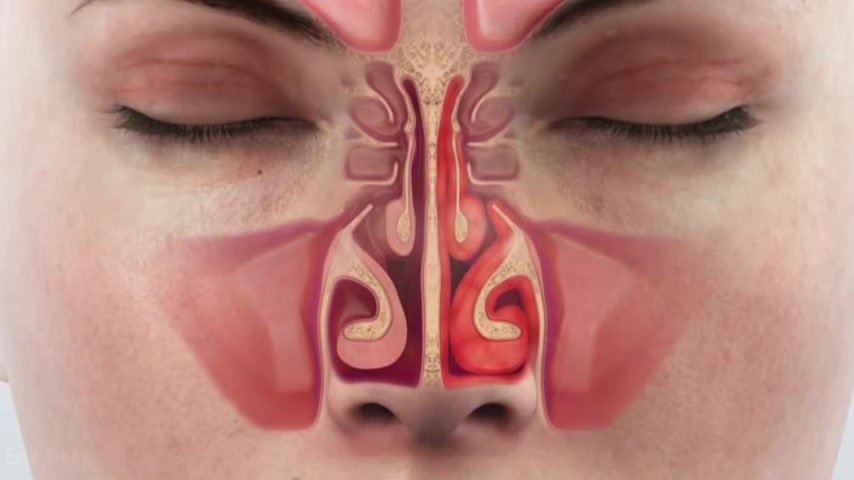Table of Contents
Discover the strong link between sleep apnea and low vitamin D levels. Learn how 98% of sleep apnea cases are associated with vitamin D deficiency and how increasing your vitamin D intake can improve sleep quality, reduce inflammation, and support overall health. Get expert insights and recommendations for managing sleep apnea effectively.
Sleep apnea and low vitamin D
Did you realize that 98% of people with sleep apnea have low vitamin D , according to a study that I just read , which which I’ll put a link down below .
So sleep apnea or obstructive sleep apnea , which is known as OSA , is majorly linked with a low vitamin D situation .
So we’re going to discuss this .
Vitamin D for sleep apnea
So vitamin D significantly reduces inflammation , and I’m talking about the tissues in the back of the throat , as well as in the back of the sinuses .
Many times those tissues are inflamed and that can be the reason why you can’t breathe at night .

Also vitamin D supports an overactive immune system .
And many times when you have an overactive immune system , you have certain parts of your body , certain tissues that are inflamed , the sinuses , the back of the throat , and even the lungs , and that can obstruct your breathing .
And then vitamin D also has a direct effect on your sleep cycles .
It helps you get into a deep , restful , rejuvenating sleep .

It helps support the Delta wave of your sleep , which is the deeper levels of sleep .
And without sleep there , you just don’t get enough repair .
Which type of vitamin D is best?
Now I just want to differentiate between the type of vitamin d .
In this topic, I’m talking about vitamin d 3 , not vitamin d 2 .
There’s been some reports that vitamin D 2 can actually create insomnia .
So you always want to make sure you take vitamin D 3 .
So a deficiency in vitamin D affects both sleep apnea and your sleep quality in general .
Vitamin D deficiency and sleep problems
Without vitamin D , you’re more likely to get low back pain , which is going to keep you up at night .

I mean , try to sleep with low back pain .
It’s very difficult .
Also snoring is linked to a vitamin D deficiency .
I mean , snoring can actually wake you up by itself .
And if your spouse is deficient in vitamin D and they’re snoring , that can keep you up .
And then I also mentioned less delta wave sleep .
The delta wave is where you get this nice deep rejuvenating sleep .
And without vitamin d , it’s very difficult to get into that delta wave sleep .

Now , without vitamin d , your stress levels are higher .
Your mood is usually lower and you’re not going to be able to sleep with more stress Without vitamin d , your cortisol levels will be off .
And without proper cortisol balance , that can affect your sleep as well .
Cortisol is a stress hormone and too much cortisol keeps you in this flight or fight mode .
And also if you don’t have enough vitamin D , you might tend to grind your teeth , which can affect your sleep cycles as well .
Probably because you have this internal stress that you’re just not able to fully relax .
I always recommend taking vitamin d with magnesium because magnesium not only helps the absorption of vitamin d , but it can prevent leg and foot cramps at night , which can also keep you up .
And lastly , vitamin D is majorly associated with insulin resistance .

So if you have insulin resistance , first of all , you’re not going to be able to absorb vitamin d very well .
And if you have low vitamin d , your chances of developing insulin resistance go up because vitamin D is essential in maintaining the beta cell of your pancreas , that cell that produces insulin .
And vitamin D helps keep the free radicals and the oxidation at a very low state in that beta cell .
Taking vitamin D for sleep problems
So in other words , to keep this to a short topic, if you have sleep problems or sleep apnea , just start taking more vitamin d .
And I would recommend a minimum of 10,000 IUs of vitamin d right before you go to sleep , and make sure you take magnesium with it .
DATA:
https://pubmed.ncbi.nlm.nih.gov/26414899
Key Points:
- Vitamin D significantly reduces inflammation. Many times, the tissues in the back of the throat and the back of the sinuses are inflamed, causing sleep apnea.
- Vitamin D supports an overactive immune system. When a person has an overactive immune system, certain tissues in the body can be inflamed and obstruct breathing.
- Vitamin D also has a direct effect on your sleep cycles. It helps you get into a deep sleep. Without vitamin D, it’s difficult to get into delta wave sleep.
- We’re talking about vitamin D3, not vitamin D2. There have been some reports that vitamin D2 could actually cause insomnia.
- A vitamin D deficiency can affect both sleep apnea and sleep quality in general. Low back pain and snoring are linked to a vitamin D deficiency.
- Low vitamin D can also cause high stress, low mood, and unbalanced cortisol, which can all affect your sleep. Teeth grinding is associated with low vitamin d as well, which can affect your sleep.
- It may be beneficial to take vitamin D with magnesium. Magnesium can help with the absorption of vitamin D, and it can also help with leg and foot cramps at night.
- Vitamin D is also majorly associated with insulin resistance. If you have insulin resistance, you won’t be able to absorb vitamin D very well. If you have low vitamin D, your chance of developing insulin resistance goes up.
- If you have sleep problems or sleep apnea, consider taking at least 10,000IU of vitamin D right before you go to sleep. Also, make sure to take magnesium with it.




